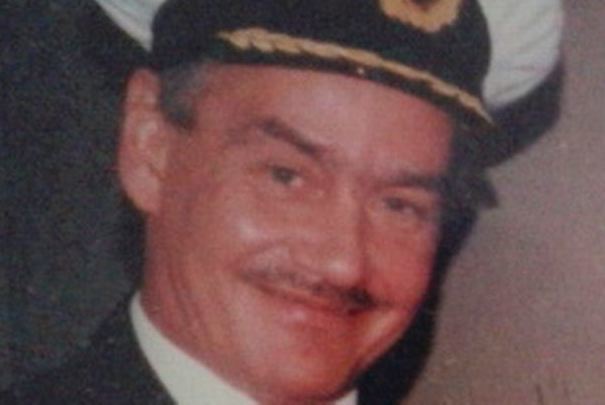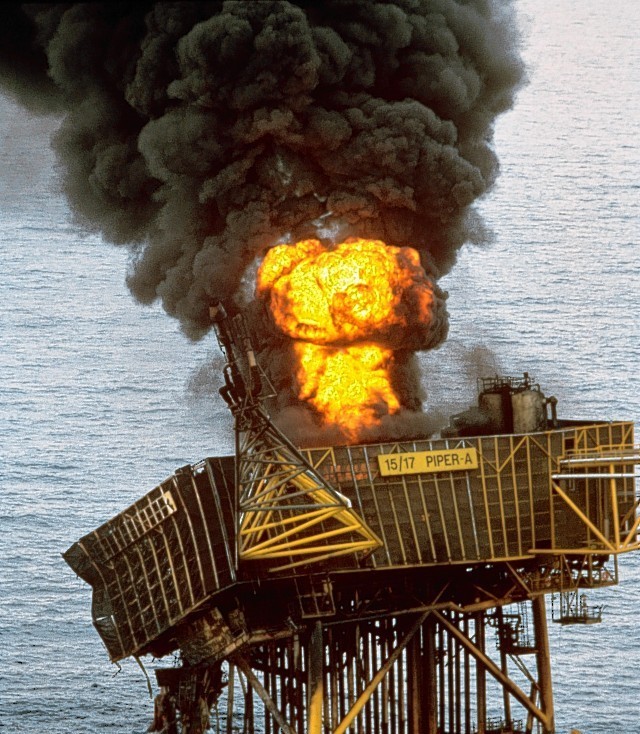A courageous sea captain who steered his vessel into the aftermath of the Piper Alpha disaster and rescued workers who had jumped into the sea has died.
Captain Sean Ennis had been working in the North Sea on the standby vessel, Sandhaven, when he responded to a Mayday call on July 6, 1988.
Little did he know, his crew were about to enter one of the worst offshore disasters in history after the Piper Alpha oil rig exploded into a raging inferno.
Undeterred, the Sandhaven was among the first vessels on the scene after the platform erupted 110 miles north-east of Aberdeen.
The boat rescued six men, but was overcome by flames when the second gas line ruptured. Two of Captain Ennis’ crew and all those rescued lost their lives.
One of them was his best friend, who died when the second explosion engulfed the fast rescue craft they had dispatched to pull survivors from the sea.
More than two decades later, as he recalled the fateful night, Captain Ennis said: “One second I was speaking to the coxswain in the rescue craft, the next second all I could see was a solid mass of flame that covered the boat.
“I spent the next 20 minutes just calling the rescue craft on the VHF, hoping for a reply but knowing in my heart and soul that I was not going to get one.”
Days after the disaster, Captain Ennis was called on to return to sea and was sent straight back to the platform to work for an oil company.
He said that if he had known he was going back to Piper Alpha, he would have asked to go somewhere else.
“It was a nightmare, but you just have to get on with things,” he said.
In 1990, Captain Ennis was given a commendation from the Government, from the then Defence Secretary Malcolm Rifkin, for his bravery and thanked for his rescue efforts.
The tragic incident was a defining moment in his career and one, he said, he will never forget.
“It was horrendous watching men burn alive, especially when one of the them was my best mate and I had ordered him out,” he said.
Captain Ennis, who joined the Merchant Navy at 17, decided to retire from his life at sea after he developed a problem with his back and was advised by a specialist to switch jobs.
He had been living in Tyneside with his wife, Lynda, who he met when he was working on a ship dry-docked in South Shields.
The father-of-four died of heart failure at his home on February 18, aged 60.
His wife said: “He always put others first.”

